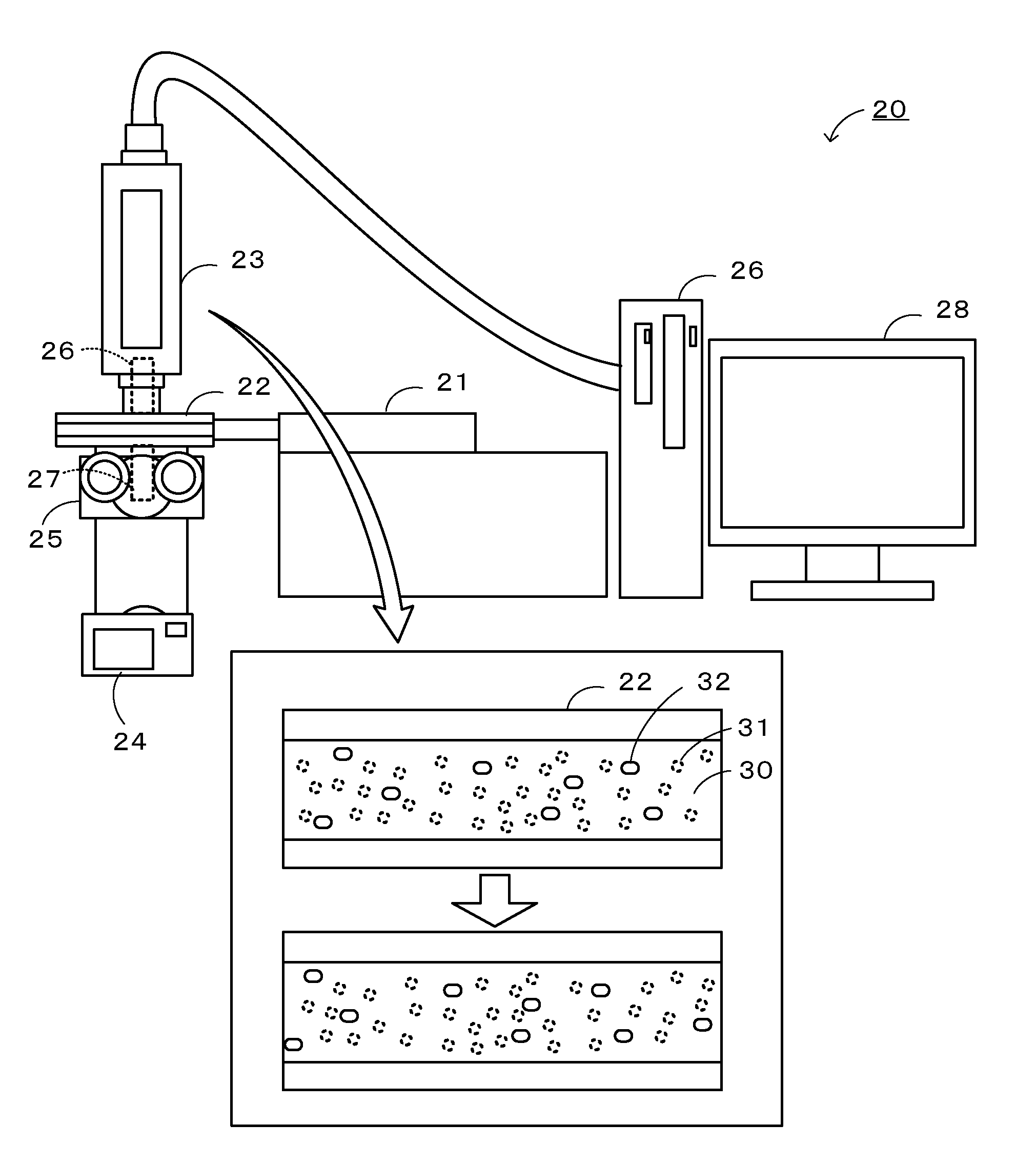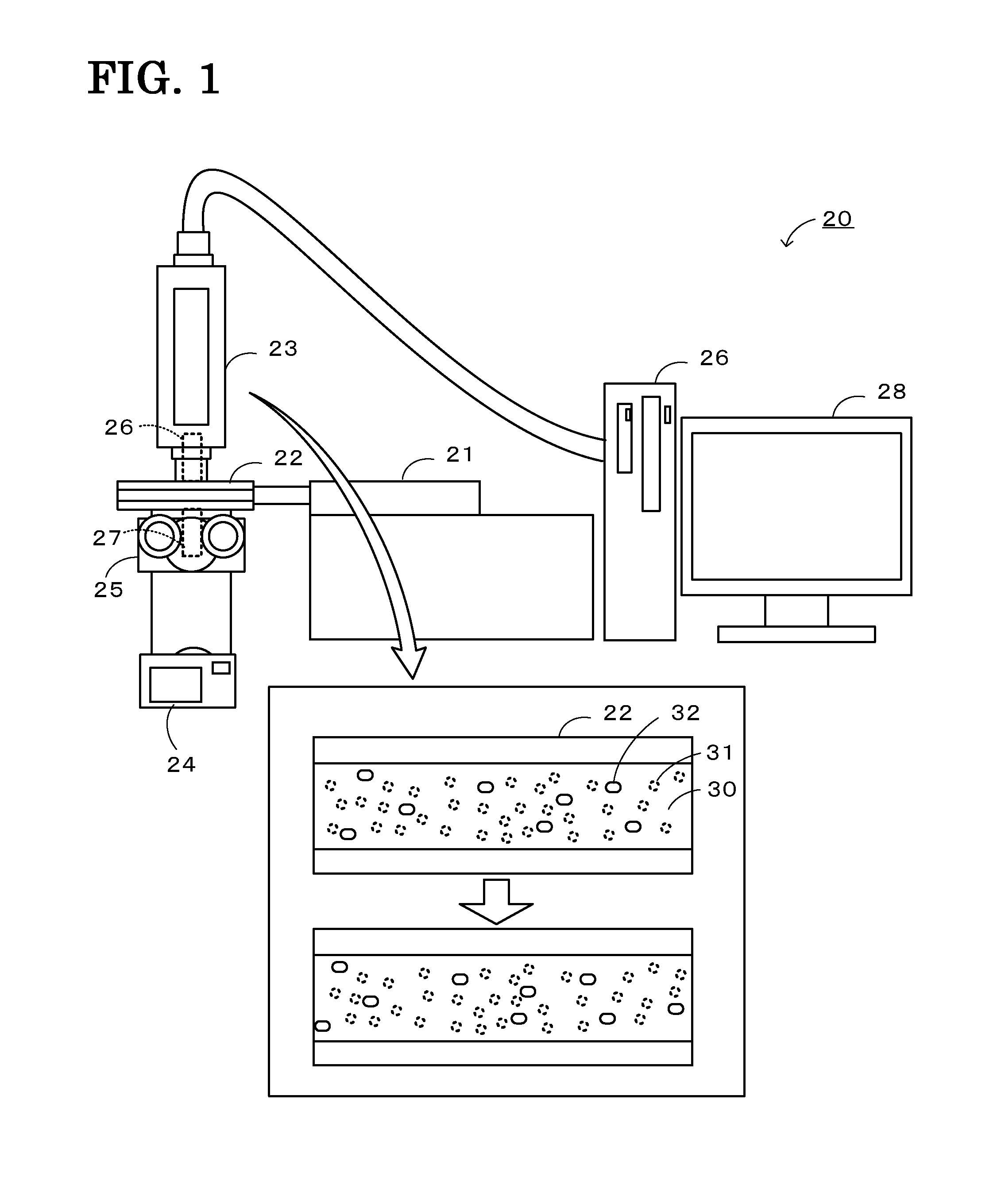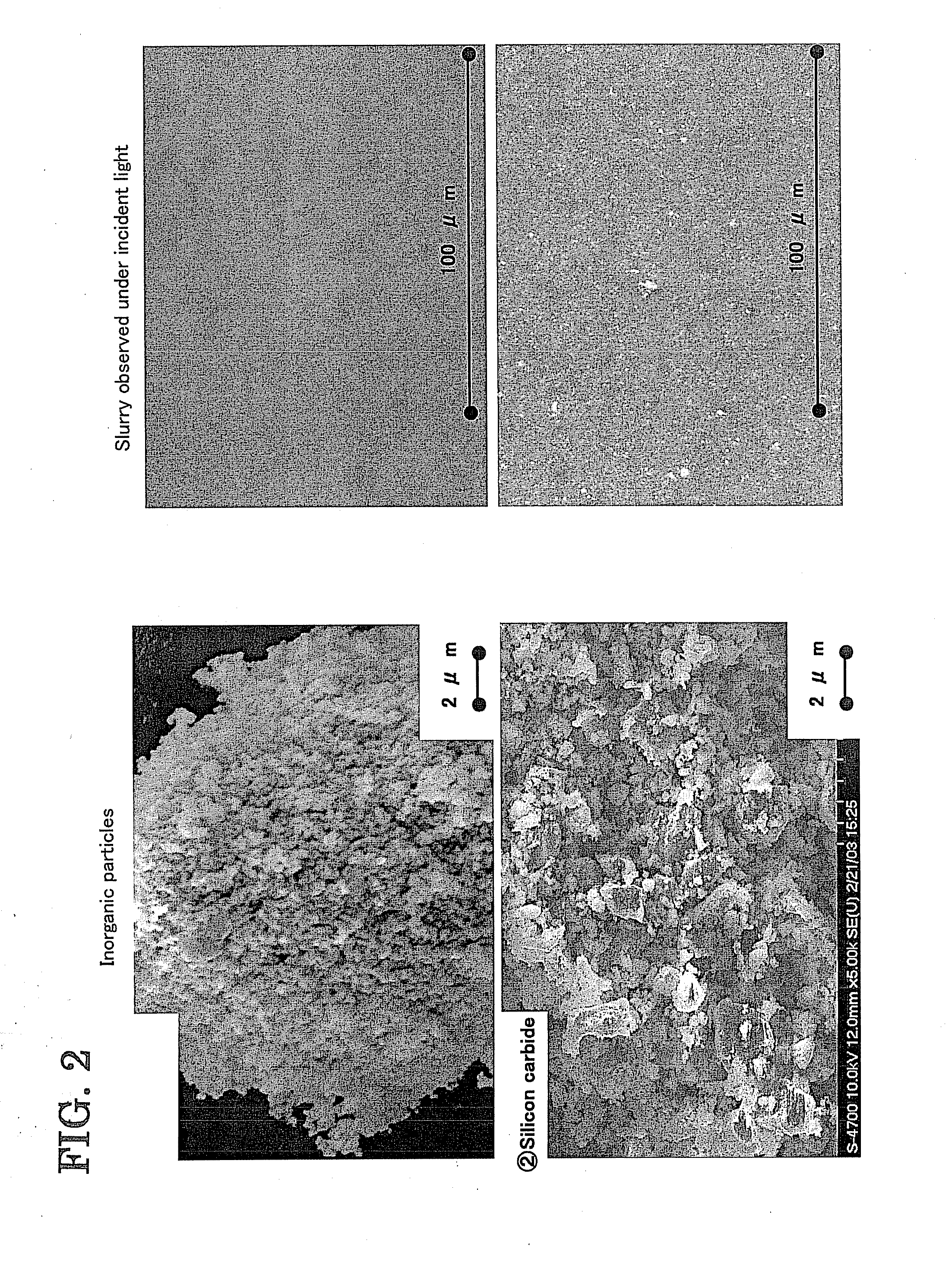Method for observing fluid and fluid flow observation
a technology for observing fluids and fluids, applied in the direction of fluid speed measurement, speed/acceleration/shock measurement, instruments, etc., can solve the problems of difficult to observe the interior of slurry, inability to successfully observe the movement of particles in fluids containing inorganic particles, etc., to improve the visibility of particles, increase the translucency of fluid, and improve the viscosity of fluid
- Summary
- Abstract
- Description
- Claims
- Application Information
AI Technical Summary
Benefits of technology
Problems solved by technology
Method used
Image
Examples
experimental example 1
[0034]A slurry containing inorganic particles was prepared as a fluid for flow observation so as to closely resemble a fluid for flow analysis. 100 parts by weight of silicon carbide particles (manufactured by Superior Graphite) serving as inorganic particles to be observed, 50 parts by weight of a mixture of triacetin and an organic dibasic acid ester (at a weight ratio of 1:9) serving as a dispersion medium to be observed, and 4.2 parts by weight of a dispersing aid (a polymerized alkylammonium salt compound having an acid group) serving as a viscosity modifier were mixed. The volume parts of the raw materials were 31 volume parts of the inorganic particles, 45 volume parts of the dispersion medium, and 4 volume parts of the dispersing aid.
experimental example 2
[0035]A slurry containing inorganic particles was prepared as a fluid for flow observation so as to closely resemble a fluid for flow analysis. 100 parts by weight of silicon carbide particles (manufactured by Superior Graphite) serving as inorganic particles to be observed, 77.8 parts by weight of a mixture of triacetin and an organic dibasic acid ester (at a weight ratio of 1:9) serving as a dispersion medium to be observed, 6 parts by weight of a dispersing aid (a polymerized alkylammonium salt compound having an acid group) serving as a viscosity modifier, and 1.1 parts by weight of polyvinyl acetal resin (a molecular weight of approximately 23,000, a butyral content of 74% by mole) serving as a viscosity modifier (binder) were mixed. The volume parts of the raw materials were 31 volume parts of the inorganic particle, 71 volume parts of the dispersion medium, 6 volume parts of the dispersing aid, and 1 volume parts of the binder.
experimental example 3
[0036]A slurry containing inorganic particles was prepared as a fluid for flow observation. 100 parts by weight of silicon carbide particles (manufactured by Superior Graphite) serving as inorganic particles to be observed, 75 parts by weight of a mixture of triacetin and an organic dibasic acid ester (at a weight ratio of 1:9) serving as a dispersion medium to be observed, and 10 parts by weight of a polycarboxylic acid copolymer serving as a viscosity modifier (dispersing aid) were mixed. The volume parts of the raw materials were 31 volume parts of the inorganic particles, 68 volume parts of the dispersion medium, and 10 volume parts of the dispersing aid.
[0037]Measurement of Particle Size Distribution
[0038]The particle size distribution of the zirconia particles and the silicon carbide particles used as inorganic particles was measured. The particle size of inorganic particles was determined as a median size (D50) using water as a dispersion medium with a laser diffraction / scatt...
PUM
 Login to View More
Login to View More Abstract
Description
Claims
Application Information
 Login to View More
Login to View More - R&D
- Intellectual Property
- Life Sciences
- Materials
- Tech Scout
- Unparalleled Data Quality
- Higher Quality Content
- 60% Fewer Hallucinations
Browse by: Latest US Patents, China's latest patents, Technical Efficacy Thesaurus, Application Domain, Technology Topic, Popular Technical Reports.
© 2025 PatSnap. All rights reserved.Legal|Privacy policy|Modern Slavery Act Transparency Statement|Sitemap|About US| Contact US: help@patsnap.com



